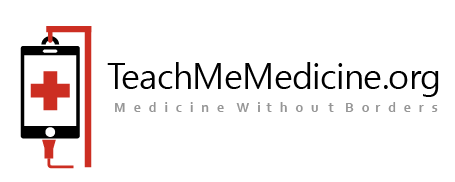Pediatrics Curriculum – Students will have to learn and be tested on the following information laid out in the curriculum*. All information can be accessed in the resources and lecture videos listed below the curriculum.
PRE-CEDE Overview:
PRECEDE (Pre-Clerkship Education Exercises) sessions are intended to introduce students to fundamental skills and knowledge that they will utilize at their inpatient and outpatient sites. Students spend three days at the start of the clerkship and two days at the midpoint of the clerkship involved in this program.
A few examples of Pediatrics PRECEDE sessions include:
- An afternoon devoted to neonatal care. Students participate in a series of “mini-sessions” regarding the topics of a hip exam, common images in neonatology and common neonatal problems. They are then escorted to the nursery and given the opportunity to perform a newborn exam on a newborn patient under the instruction of a faculty preceptor.
- A session on gathering sensitive medical and social histories from adolescents in which standardized patients portray youth in the Simulation Center exam rooms.
- A session on otitis media in which students learn how to properly perform pneumatic otoscopy on a simulator and diagnose common problems of the ear.
- A simulation of respiratory distress in an infant.
Learning Objectives
Medical Knowledge
- Demonstrate the ability to generate an age-appropriate differential diagnosis based on the interview and physical examination.
- Describe the components of a pediatric health supervision visit including health promotion and disease and injury prevention, the use of screening tools, and immunizations for newborns, infants, toddlers, school aged children, and adolescents.
- List the differential diagnosis for common symptoms or patient presentations such as abdominal pain, abnormal growth pattern, ALTE, respiratory distress, jaundice, vomiting, diarrhea, wheezing, and seizures.
- Describe the clinical features of common acute and chronic medical conditions such as asthma, anemia, atopic dermatitis, AD/HD, bronchiolitis, Kawasaki disease, cellulitis, cerebral palsy, child abuse, croup, dehydration, diabetes, strep pharyngitis, meningitis, epilepsy, urinary tract infection, osteomyelitis, gastroenteritis, gastroesophageal reflux, otitis media, viral URI.
Clinical Care
- Demonstrate an ability to perform an age-appropriate history and physical examination in children of all ages.
- Interpret the results of common diagnostic tests with an emphasis on age related norms.
- Search for relevant information using data sources (textbooks, electronic searches) and critically appraise the information obtained to make evidence based decisions in patient care.
Professional Behavior
- Demonstrate a positive attitude and regard for education by demonstrating universal attendance, punctuality, intellectual curiosity, initiative, honesty, responsibility, dedication to being prepared, maturity in soliciting, accepting, and acting on feedback.
Communication Skills
- Demonstrate communication skills with patients and families that convey respect, integrity, flexibility, sensitivity, and compassion while avoiding use of medical jargon.
- Present a complete, well-organized verbal and written summary of the patient’s history and physical examination findings, including an assessment and plan modifying the presentation to fit the time constraints and educational goals of the situation.
*Pediatrics Curriculum – This curriculum is a curriculum formed by Johns Hopkins School of Medicine.
